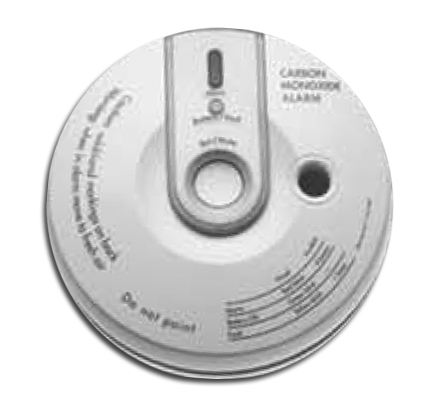The California Air Resources Board has passed Senate Bill 183 (Lowenthal) that will mandate carbon monoxide detectors to be installed in all California dwellings including but not limited to duplexes, dormitories, apartment complexes, hotels/motels, and single family units.
The rationale for this law stems from the 30 to 40 “avoidable deaths” on average due to unintentional carbon monoxide poisoning, and a growing percentage of medical emergency cases being brought into the ER with high levels of CO gas exposure.
 Known as the “silent killer”, CO gas is lethal because it is colorless and odorless making it difficult to detect until it’s too late. It’s produced when any material burns, and can build up to dangerous levels in your home through gas stoves, water heaters, furnaces, clothes dryers or fireplaces if they aren’t properly vented, operated or maintained.
Known as the “silent killer”, CO gas is lethal because it is colorless and odorless making it difficult to detect until it’s too late. It’s produced when any material burns, and can build up to dangerous levels in your home through gas stoves, water heaters, furnaces, clothes dryers or fireplaces if they aren’t properly vented, operated or maintained. Although CO Gas is discrete you can still feel it’s affects with headaches, sleepiness, fatigue, flu-like symptoms, and just an overall feeling of being sick all symptoms that trigger a medical Alert.
Regardless if it’s state law or not, it’s a good idea to have a smoke and gas detector in the home, especially if the home consists of children, elders, or anyone on prescription medications that may cause drowsiness. Because of their bodies, children and the elderly can be affected by poisonous gas quickly, and anyone on prescription drugs runs the risk of sleeping through a beeping alarm. So you may want to consider a little added protection with your CO gas alarm by buying one that comes with monitoring system.
CO gas detectors work much like a smoke detector; once the invisible gas reaches a certain level it sounds the alarm warning of gas poisoning danger. But when a CO gas detector is monitored it not only sounds its siren to warn you of dangerous gas levels but it also alerts an emergency response center, which immediately calls you and dispatches help. So, even if you’re not able to respond to the CO alarm, the emergency response center will still send help.
If you’re buying or selling houses, apartments, condos or mobile homes in California you must install a CO gas detector according to SB183, but if you’re going to live in any of the aforementioned, regardless if you’re a California resident or not, it’s a smart investment to get a monitored CO gas detector to prevent you, while sleeping, of being sent to your eternal rest by the silent killer.
Are you in violation of SB183? A new law passed that may save your life but requires a minor home improvement. Read on to find out what you need to do.
